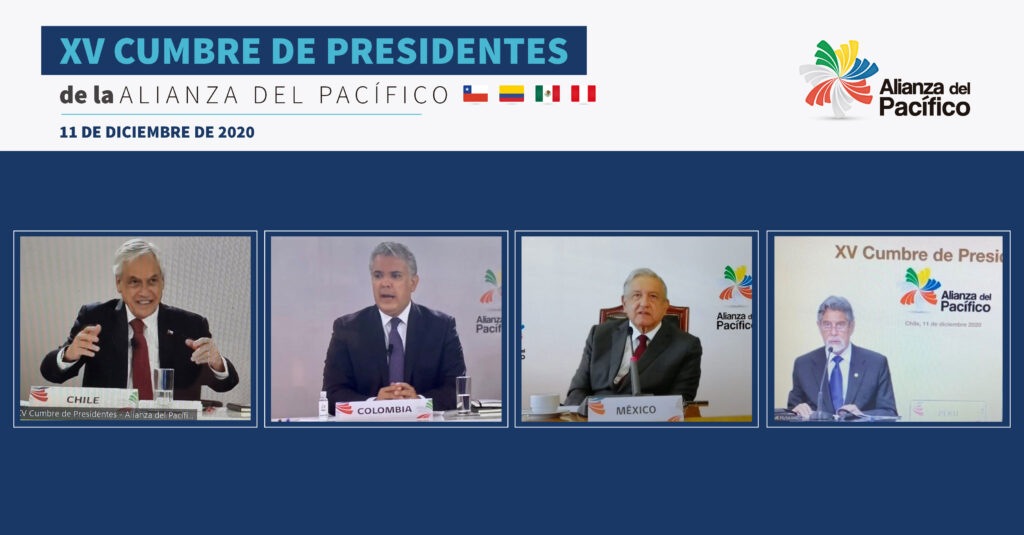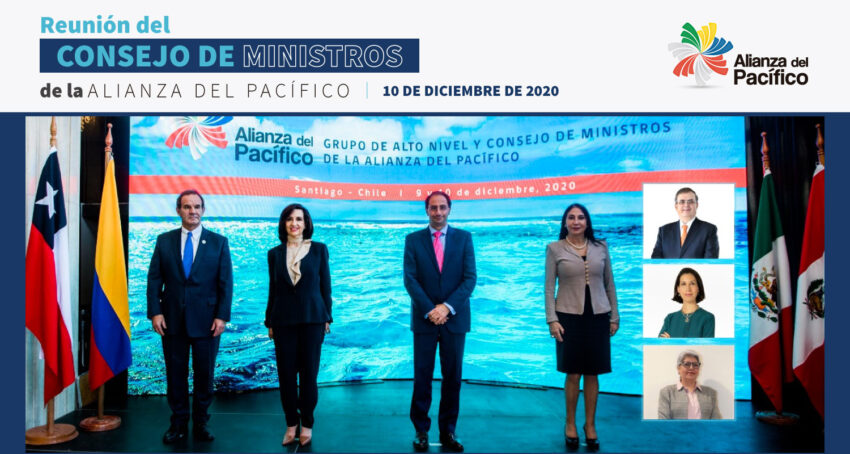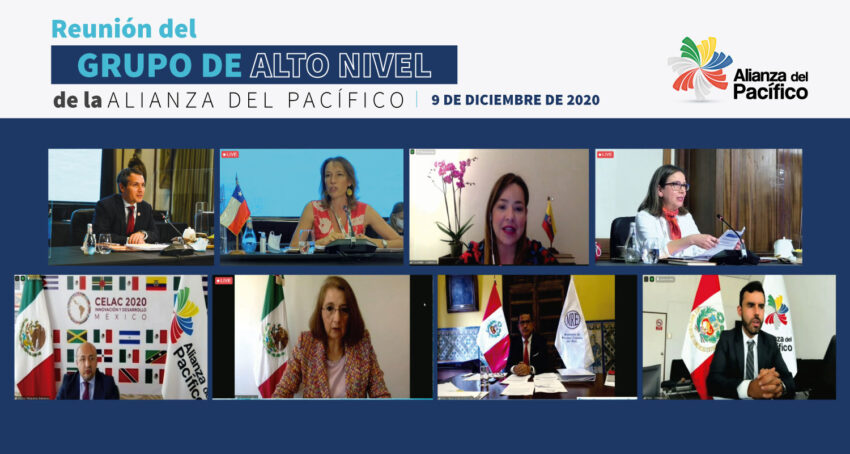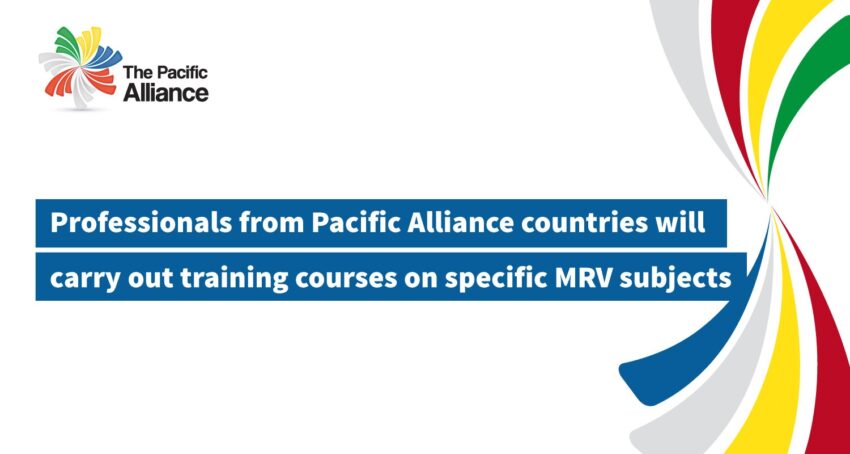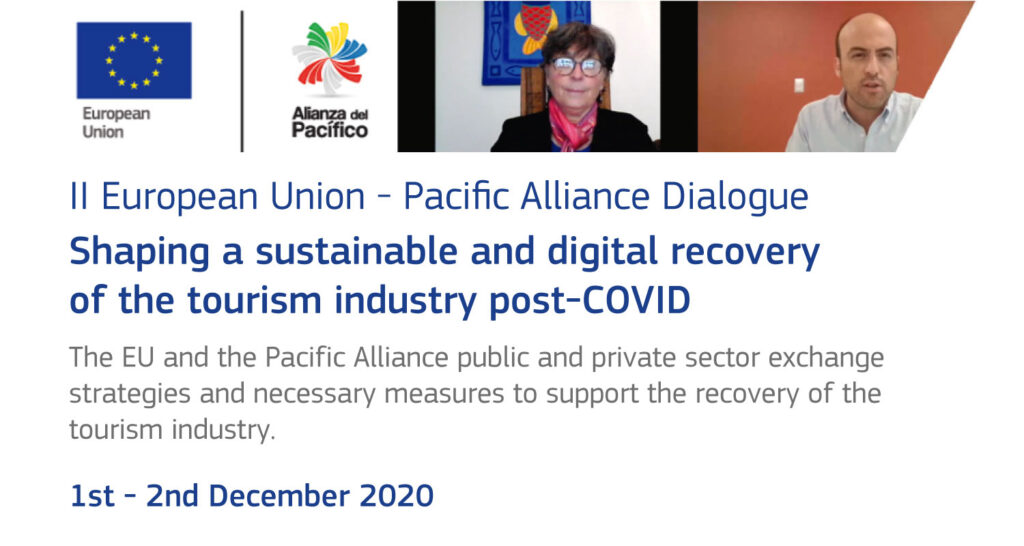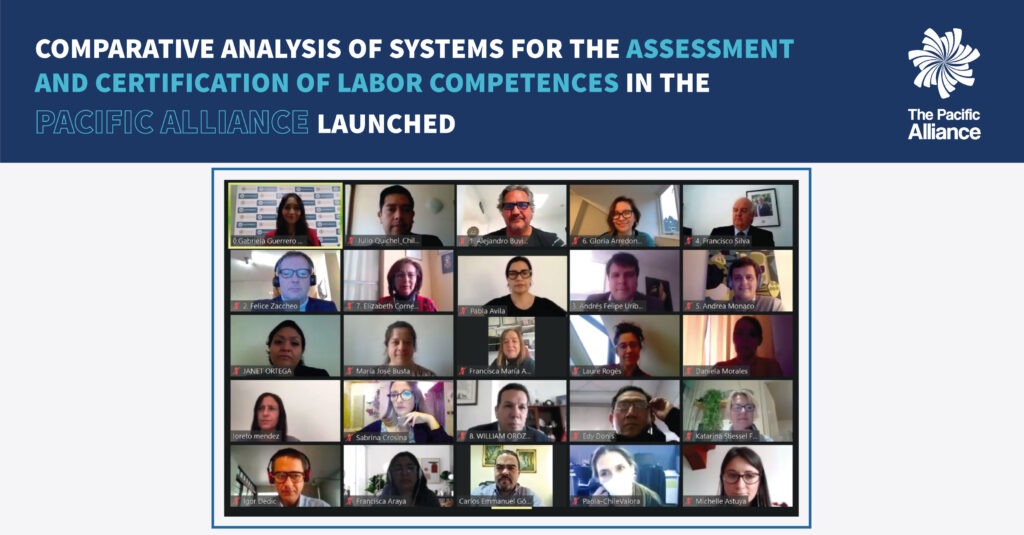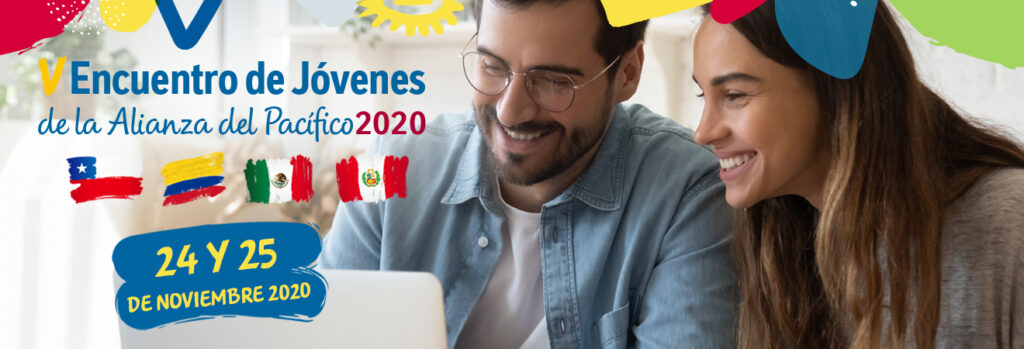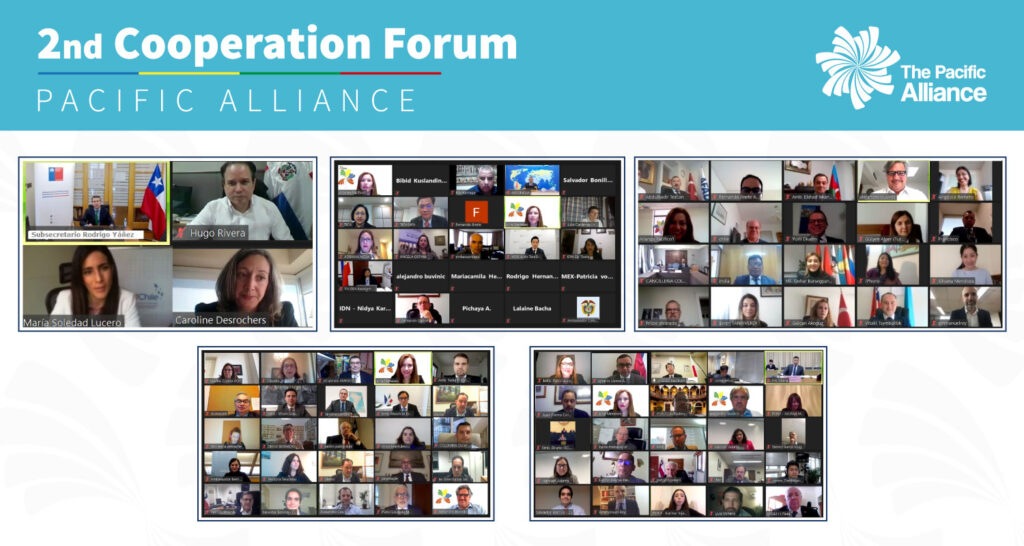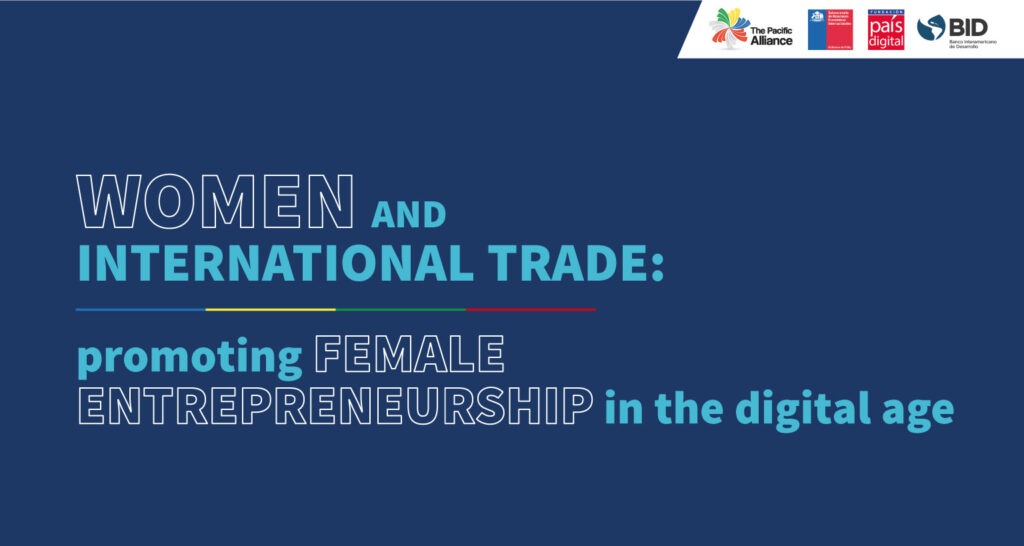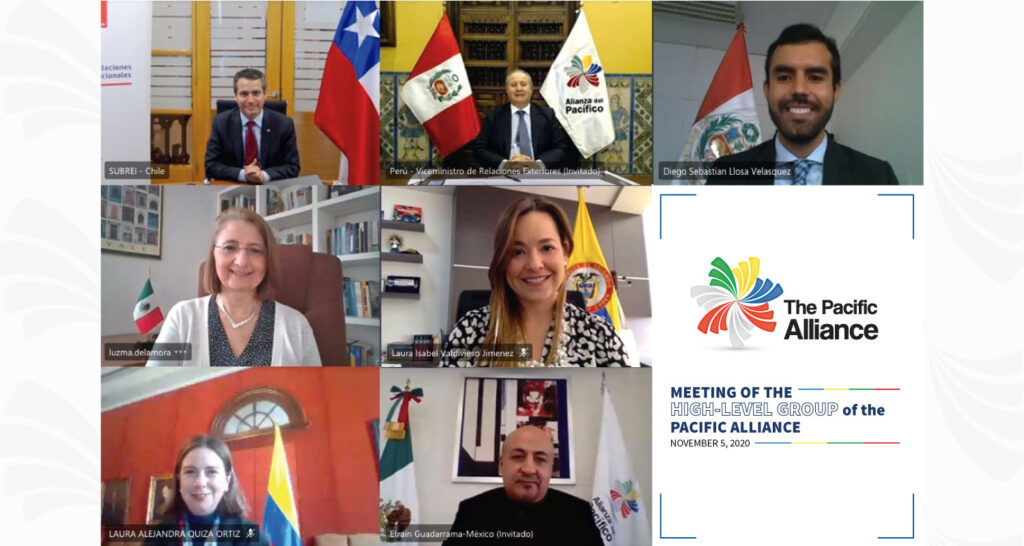On the occasion, Chile transferred the pro tempore presidency of the regional mechanism to Colombia after 16 months of management.
Santiago, December 11, 2020. Today the XV Summit of the Pacific Alliance was held. The meeting was led by the President of Chile, Sebastián Piñera, who was accompanied in person by the President of Colombia, Iván Duque, and virtually by the Presidents of Mexico, Andrés Manuel López Obrador, and Peru, Francisco Sagasti.
During the Summit, the presidents signed the Santiago Declaration, which expresses their “deep regret for the loss of thousands of human lives in the region, as well as the loss of millions of jobs and the increase in poverty as a result of the COVID-19 pandemic,” their commitment to “continue working together to recover from the effects generated by COVID-19 and overcome its economic and social impacts,” and their “recognition for the prompt development and implementation of the COVID-19 Action Plan” of the Pacific Alliance.
In the Declaration, the presidents also thanked the observer states, regional mechanisms and international organizations for their participation in the Second Technical Cooperation Forum 2020 and highlighted the adoption of the Joint Declaration on a Partnership between the States Parties to the Framework Agreement of the Pacific Alliance and the European Union, signed on September 25, 2019, which made it possible to share experiences regarding economic recovery in the face of COVID-19.
They highlighted the launch of the Pacific Alliance web platform, developed in conjunction with the IDB, and the implementation of the Roadmap on Improving Management of the bloc, “which will allow for more efficient work, with clearer roles and permanent monitoring of mandates.
They also indicate their agreement with “the approval of the Roadmap of the Presidential Declaration on Sustainable Management of Plastics, signed in Lima in July 2019, which will allow the implementation of actions aimed at reducing the impact of single-use plastics on our environment”.
Inspired to achieve the goal of the Pacific Alliance to promote greater growth, development and competitiveness of the economies of the countries that make up the Alliance, with a view to achieving greater well-being, overcoming socio-economic inequality and social inclusion of their people, the Presidents signed the Pacific Alliance Presidential Declaration on Gender Equality, which is accompanied by a roadmap to identify priority areas for action and goals in terms of economic empowerment to guide the work of the Pacific Alliance in the design, implementation and evaluation of public policies and initiatives to promote the economic and social development of women in the region, as well as the adoption of regulations to eliminate barriers to women’s access to capital and credit; to have measures that ensure that men and women have equal rights and opportunities in the workplace; to increase the regional balance of women in decision-making positions; to increase the regional balance of women graduates in the areas of science, technology, engineering and mathematics.
The Presidents also declared their firm intention to advance the implementation of the Strategy for a Regional Digital Market within the framework of the Pacific Alliance, to improve access to digital commerce; create an enabling environment to promoting digital commerce and boost the digital economy to generate new sources of growth and productivity, by signing the Pacific Alliance Presidential Declaration on the development of the Regional Digital Market and the drive towards Digital Transformation. The Regional Digital Market will allow, particularly SMEs, to expand their opportunities through actions aimed at reducing trade barriers and the use of digital tools for their international insertion.
During the Summit, the highest authorities of the Pacific Alliance held a meeting with the President of Ecuador, Lenin Moreno, a country that is applying to become a full member of the regional mechanism.
They also met with the Prime Minister of Singapore, Lee Hsien Loong, a Candidate country for Associated State of the Pacific Alliance with which a substantial closure of negotiations has been reached.
In addition, they held virtual meetings with the members of the Pacific Alliance Business Council (CEAP, by its acronym in Spanish) and with representatives of the Inter-American Development Bank (IDB), the Economic Commission for Latin America and the Caribbean (ECLAC) and the Development Bank of Latin America (CAF).
See Presidential Declaration of Santiago
Pacific Alliance Presidential Declaration on Gender Equality
Pacific Alliance Presidential Declaration on the development of the Regional Digital Market and the drive towards Digital Transformation
PACIFIC ALLIANCE

